The Truth on the Low Carb Diet for Runners
- April 29, 2019
- Last Updated: June 18, 2024
- 6 Comments
- Sports Nutrition
I’ve gotten many questions about the keto diet for runners lately among my private clients, so I felt it was time to discuss it publicly.
As a disclaimer, though I am a Registered Dietitian, I am not YOUR Registered Dietitian, nor am I a medical doctor.
Always consult with your healthcare provider for personalized medical advice.
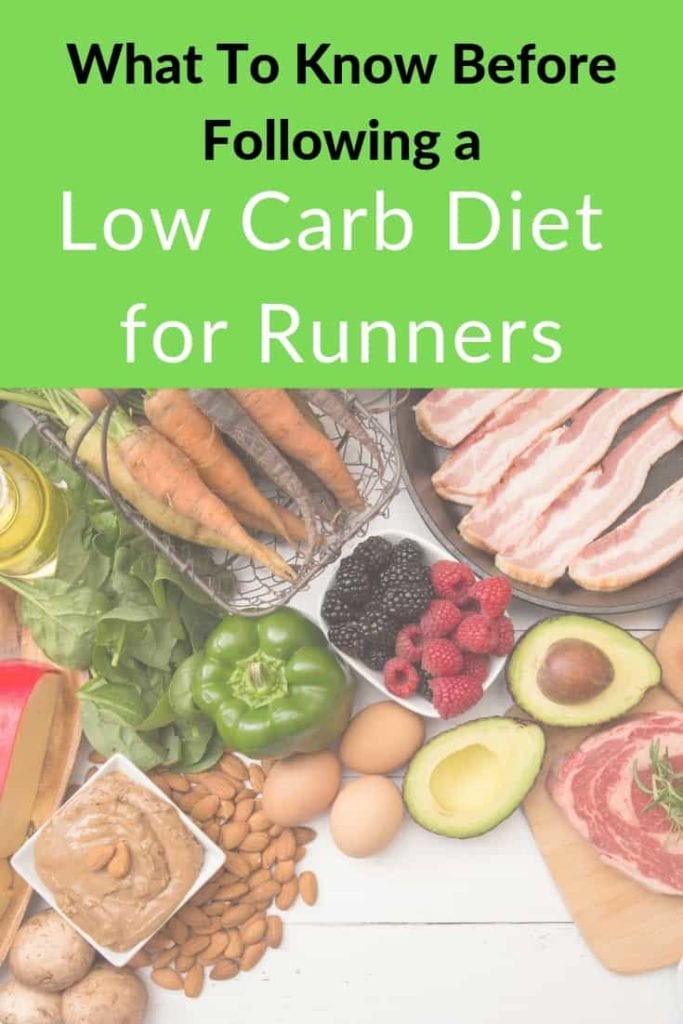
As an Amazon Associate, I may earn from qualifying purchases. You can read more here about our Disclaimer and Privacy Page.
I think we’re all clear that I am not the dietitian to recommend a low carb diet.
It goes against my typical pre workout nutrition recommendations, and even the basic nutrition advice for fueling for a marathon.
Unless you have a chronic disease that a low carb diet has been medically shown to benefit (through lots of research), low carb running may not be the answer to improve your performance.
However, I am writing this post to clear up some misconceptions, and I will link to plenty of research throughout this post for those who have questions or doubts.
Sometimes I feel the need to write scientific posts, especially those that speak to runners’ performance.
If you’ve ever wondered, Why am i craving carbs, this is why.
While this is an informative post, there is no way to cover all of the information on the topic of the low carb diet for runners, so please share if you have specific questions.
A DIETITIAN IN YOUR POCKET?!
Are you always hungry?! This is the sports nutrition resource you’ve been missing in your training and every day life. Here’s you can make sure you’re eating enough for daily life, performance and recovery. – grab it now!
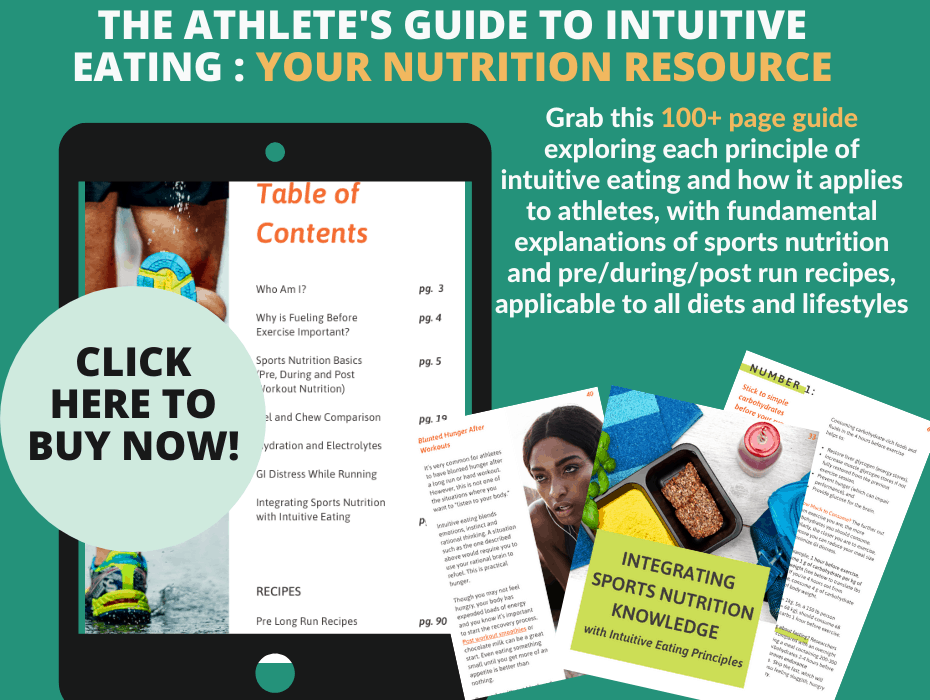
In This Article
- The Role of Carbohydrates in Exercise
- What is Carbohydrate Availability?
- What Is A Low Carb Diet for Runners?
- Is Low Carb the Same as The Keto Diet For Runners?
- Why I Don’t Recommend Keto Diets for Running
- Are There Any Benefits to Low Carb Running?
- How Does Low Carb Running Affect Performance?
- What Are the Risks of High Fat Low Carb Running?
- Dietary Risks of A Low Carbohydrate Diet
- Final Thoughts
- Want To Check Out More of the Marathon Training Series?
The Role of Carbohydrates in Exercise
Let’s start by reviewing why carbohydrates are the quickest source of fuel for exercise. They help sustain exercise intensity and duration.
Aerobic activities (those requiring oxygen), including long-distance running cycling, require sufficient oxygen for performance.
Typically, our bodies rely on both carbohydrates and fats to meet these energy demands.
As discussed in The Journal of Sports Sciences, we know that carbohydrate intake enhances performance, even if it is used as a mouth-rinse.
Generally speaking, the recommendation is 30-60 grams of carbohydrate per hour for sports of longer duration.
Events longer than 2-2.5 hours (like marathon training, ultra marathons, ironmans) may benefit from higher intakes of up to 90 grams/hour.
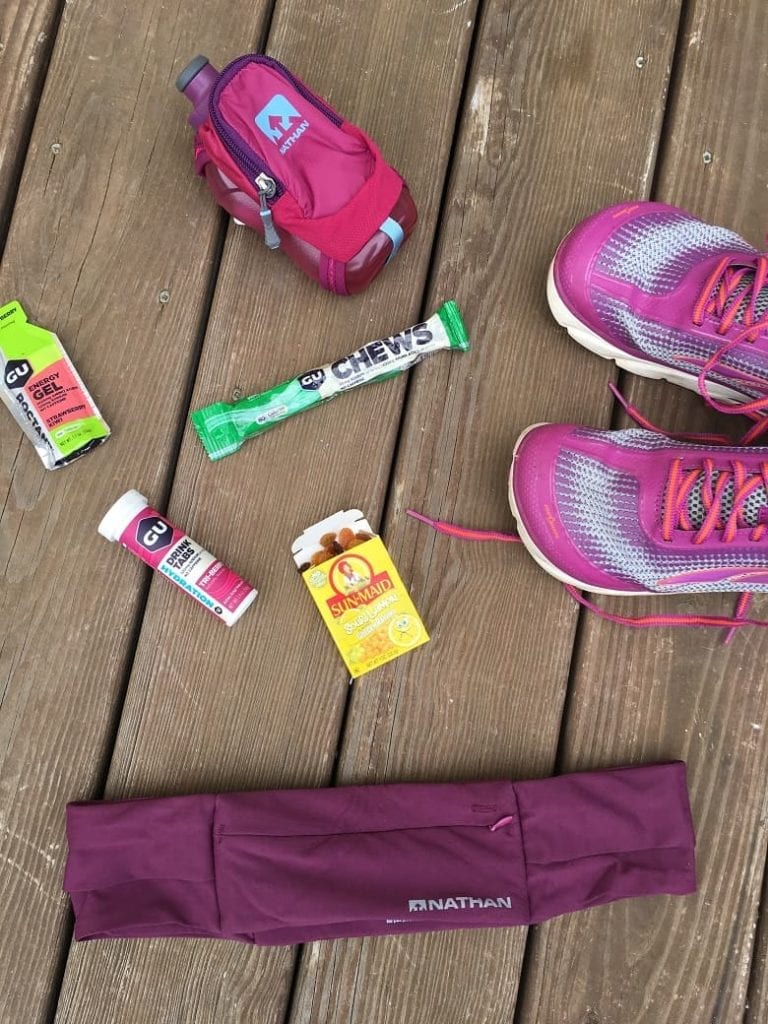
Products containing special blends of different carbohydrates (like chews for running) may help maximize the absorption of carbohydrates at such high rates.
Studies using multiple transportable carbohydrates (i.e., glucose + fructose) have shown benefits to the performance of exercise activities of ∼3 h duration compared with the ingestion of glucose alone.
A study published in Medicine and Science in Sports and Exercise (MSSE) found an 8% quicker time to completion during a time trial among those who ingested glucose and fructose vs. glucose alone.
Plus, carbohydrates are the key to preparation with carb loading and recovery!
Here are some of the best foods for carb loading we like to recommend and why.
What products have glucose and fructose?
There are a few! These are just some of my favorites.
What is Carbohydrate Availability?
An athlete’s carbohydrate intake can be judged by whether total daily intake and the timing of consumption in relation to exercise help to maintain adequate carbohydrate substrate for the muscle and central nervous system.
If so, it’s known as “high carbohydrate availability.” This is how I eat and recommend my athletes eat with a stocked pantry.

If carbohydrate fuel sources are limited for the daily exercise program, it’s known as “low carbohydrate availability.”
This is more common if athletes are consuming a high-fat diet (or keto diet for runners). Runners and keto diet don’t seem to sync with me but it’s a thing.
How Do We Increase “Carbohydrate Availability”?
We can increase our carbohydrate availability by consuming more carbohydrates in the hours or days prior to the session (“carb loading”).
We can also increase intake during exercise and during the refueling and recovery period.
This is important for the competition setting or for high-intensity training where optimal performance is desired (Source).
What Are The Benefits of Carb Loading?
If you’re doubtful of carbohydrate loading, the research is on its side. Here’s what we know carb loading can help with:
- Increase Muscle Glycogen Stores. Since muscle glycogen depletion is a well-recognized limitation to endurance performance, carbohydrate loading (or glycogen supercompensation) is beneficial for increasing muscle glycogen stores. Carb loading can increase muscle glycogen stores from resting levels of 130-135 mmol/kg to 210-230 mmol/kg (Burke; Preparation for Competition).
- Maintain High-Intensity Exercise for Longer. Carbohydrate loading enables runners and athletes to maintain high-intensity exercise longer, so it’s very pertinent for long-distance running. A carb-loading regimen, which typically consists of a tapering period of 3 days, followed by a high carbohydrate diet (10 g/kg/d) can also postpone fatigue and extend the duration of steady-state exercise.
- Extend Steady-State Exercise And Performance. As discussed in the journal, Sports Medicine, carb loading may extend steady state exercise by about 20%, and improve performance by about 2-3% in which a set distance is covered as quickly as possible.
To reduce gut distress, most athletes can manage low-fiber carbohydrates more easily during a carb-loading period (things like white rice, white pasta, white bread, less fruits and veggies).
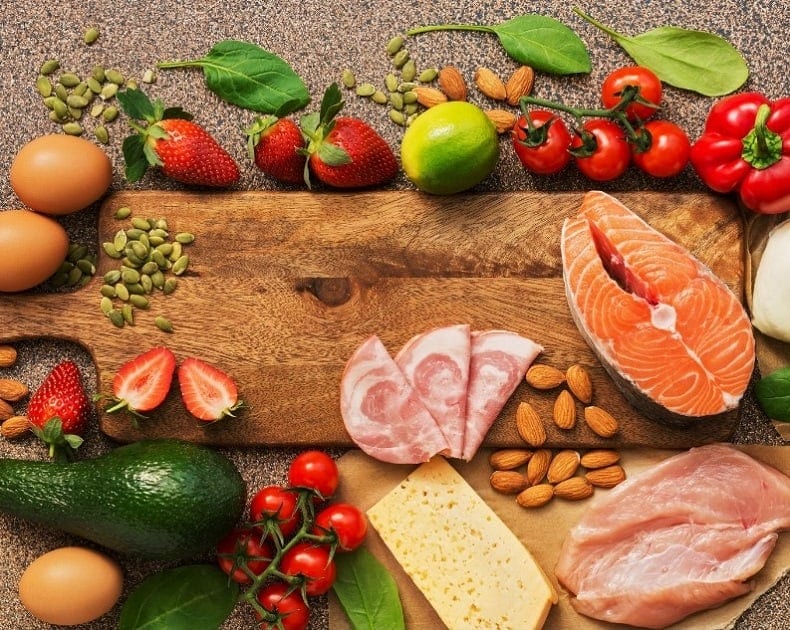
What Is A Low Carb Diet for Runners?
Low carb running may look very different than a low carb diet for the general person.
For example, carbohydrates are typically the largest macronutrients of our diets, generally comprising between 45 and 65% of an average person’s intake.
This is because carbohydrates are found in a wide range of foods, including grains, fruits and vegetables, dairy and sweets.
Carbohydrates generally make up an even larger percentage of the diet for most runners.
They serve as the major pre-running fuel, and should be included in part of the post-run, recovery meal or snack also.
However, since this post is specific to runners, I’m going to focus on them.
- A low carbohydrate, high-fat diet (similar to a keto diet for runners) typically contains <50 grams/day of carbohydrates.
- The majority of calories (70-85%) is coming from fat, with a moderate amount of protein (15-20% of total intake). Therefore, by default, a small percentage is coming from carbohydrates. Here is more information on protein needs for athletes.
A runner following a low carb diet may eat lots of high-fat meats, butter, avocado, full fat dairy, nuts and seeds. While there are several benefits of chia seeds for runners, they don’t provide everything.

Training with Low Carbohydrate Availability
We know that endurance training leads to many adaptations in skeletal muscle that can improve exercise capacity. An important adaptation is an increase in mitochondrial biogenesis.
In other words, an increase in mitochondrial mass from consistent training. This helps individuals exercise longer at higher intensities.
There is some evidence that training with “low carbohydrate availability” (in essence, teaching the body to adapt to burning fats) may promote greater mitochondrial biogenesis than when subjects are training with normal or higher glycogen levels (Source).
This is based on some studies that have found that training with reduced carbohydrate availability during short-term endurance training upregulated oxidative enzymes and activated more pathways for mitochondrial biogenesis, as well as increased intramuscular lipid oxidation.
In other words, the muscles have been conditioned and have learned to burn more fat, which our bodies have basically unlimited stores of.
Our carbohydrate stores are more limited, which is why sometimes runners “hit the wall.”
The idea that “training low” enhances performance is very unclear. In fact, it’s well supported in the research that training hard or at a high intensity requires sufficient carbohydrate intake to fuel the needs of glycogen storage and restoration.

Is Low Carb the Same as The Keto Diet For Runners?
The ketogenic diet (“keto” for short) has become a very trendy word over the past year.
Although it was originally developed for epilepsy, people have started following it religiously for its purported weight loss and health benefits.
People have come to think low carb and running for weight loss are the same thing, when in reality, they’re not one in the same. There’s also no guarantee that running on a keto diet to weight loss.
The terms, “low carb” and “keto” do have different meanings. There is usually a set threshold (about 30-50 grams of carbs/day) to stay below to get in “ketosis.”
Why I Don’t Recommend Keto Diets for Running
I wouldn’t recommend the keto diet to anyone.
My clients are generally runners, or women, working to make peace with food.
A diet is still an external set of rules that dictates how you eat and diet’s don’t work. Runners following a keto diet are learning to ignore food cues (including, possibly hunger and fullness) and follow a list of “good” foods/”bad” foods.
But let’s distinguish between low carb and keto.
A low carb diet plan for runners is typically described as a percentage of total calories (about 30%). So, if some runners are eating high amounts of calories in general, “low carb” may still be a high number of carbohydrates in terms of grams.
Yet it’s relatively low compared to other nutrients in the diet.

Are There Any Benefits to Low Carb Running?
While “keto exercise” is such a buzz term, I really want to explain to my clients and athletes how the body utilizes food. So, we usually go over much of what I’ve written about above.
We discuss how the body uses and prefers carbohydrates, and how carbohydrates can directly impact performance.
The keto diet and exercise isn’t really a natural state for the body. I’ve also found among past clients who have tried the ketogenic diet is that they don’t feel satisfied after eating because they aren’t getting carbohydrates.
However, if they are really committed to trying low carb running, I’ll show them the evidence and let them make the final decision.
Do you need carbs to run? Well, if you’re looking to PR or gain speed and endurance, carbs for runners are crucial.
You don’t want to jeopardize that by not consuming adequate carbohydrates.
However, as mentioned above, the body can be conditioned and taught to rely on fat oxidation (rather than burning carbohydrates) during endurance training.
This can be beneficial for athletes who are competing in ultramarathons or long distance events. By relying less on carbohydrate intake, their bodies are more capable of slow-burning fats for energy.
We can typically store 1-2 hours of “glycogen” reserves in our muscles during exercise before we need exogenous fuel.
When we are “fat-adapted” or “training low,” we can spare that glycogen for longer because we are primarily relying on oxidizing fatty acids for fuel.
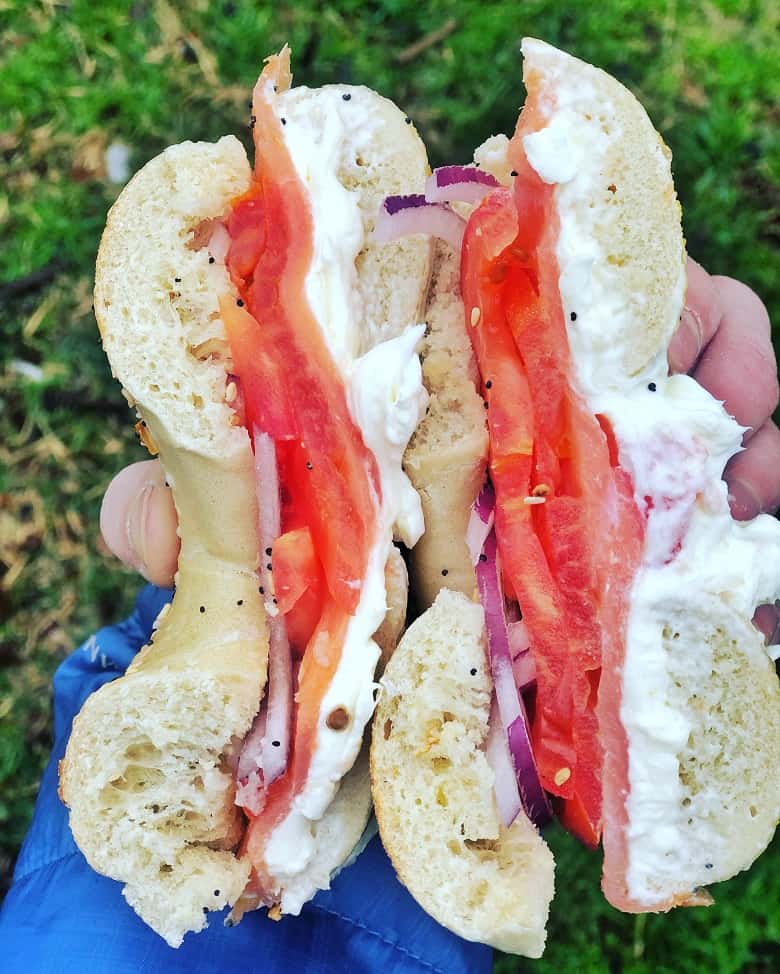
It may also be helpful for athletes who struggle to digest carbohydrates as well, though we can usually fix runners’ gut with nutrition.
However, there are some risks that should also be discussed with inadequate intake.
How Does Low Carb Running Affect Performance?
Alright, now we get to the meat and potatoes. As I’ve already hinted to, perhaps you have some idea that a low carb diet is not optimal for performance.
There is sound evidence that high carbohydrate availability is desirable in the competition setting where it may contribute to optimal performance.
While a keto marathon training plan can reduce carbohydrate utilization during exercise, there have not been any reported ergogenic benefits. In other words, you likely won’t achieve your PR if you’re following a low carb diet for exercise.
Even if athletes would like to reduce the total proportion of carbohydrates in their diets, but not to a super low carb level, it’s possible to strategically consume more carbohydrates.
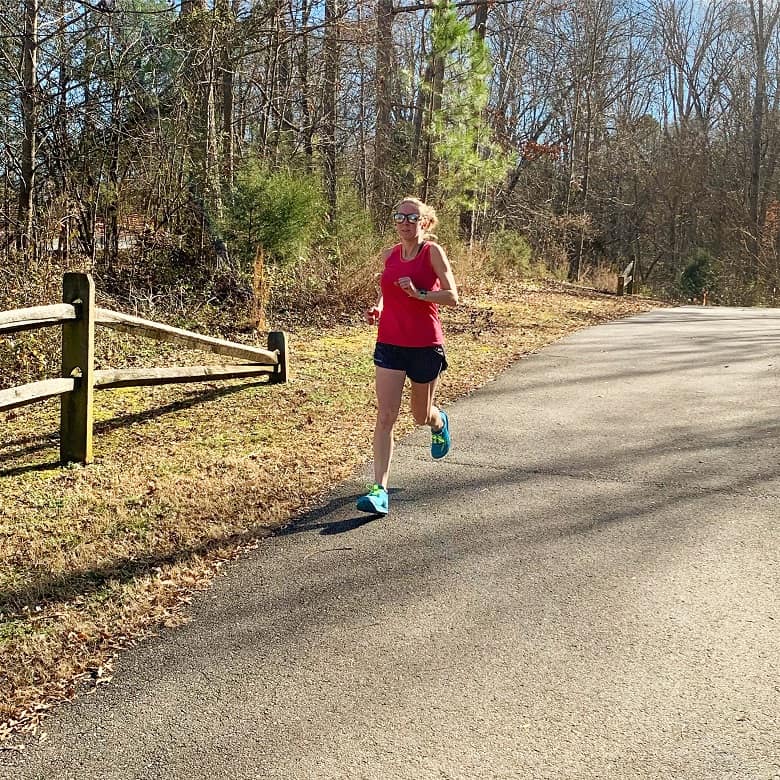
What Are the Risks of High Fat Low Carb Running?
So, do you need carbs for running? I’ll answer that by sharing the side effects or risks of training on low carb diet:
Reduced Immunity
As mentioned in the Sports Nutrition Handbook, “performing long-duration or high-intensity training sessions in a carbohydrate-restricted state may also compromise immune function and increase the risk of illness.”
Loss of Muscle Mass
When your muscle glycogen levels are at the bare minimum, the body will find other ways to create energy. The majority will come from fat oxidation, however, some will also come from increased muscle protein breakdown. Therefore, long-term training on a low-carbohydrate diet may cause a loss of skeletal muscle mass.
Decreased Ability to Oxidize Carbohydrates During Training
By avoiding carbohydrates during training, your body can forget how to oxidize (use them for energy) exogenous carbohydrates when they are needed, since they are an important fuel source for prolonged exercise.
This selective metabolic adaptation to exercise can also harm endurance performance and lead to quicker fatigue.
Limited Performance
Once again, low carb running will likely impact performance, since we’ve discussed how oxygen can be a limiting factor for performance.
Also, over time, training with reduced carbohydrate availability may limit the athlete’s ability to maintain desirable training intensity.
Dietary Risks of A Low Carbohydrate Diet
There are also some plain old nutrition inadequacies with a low carbohydrate diet for runners.

- Reduced Nutrient Intake
- Carbohydrates are key sources of several vitamins and minerals, ranging from B-Vitamins and Vitamin C to calcium and magnesium. If you’re not consuming sufficient carbohydrates, you’ll likely need to take a supplement.
- Decreased microbiome diversity
- Carbohydrates are the main source of prebiotic fibers, and even probiotics. Eliminating or reducing them from our diets can reduce bacterial diversity. While research on the microbiome is in its infancy, studies have revealed positive changes in our gut bacteria in response to exercise. This may also contribute to some of the health effects of regular, moderate exercise.
- Gastrointestinal distress
- Fat can be heavy on the body and for digestion, especially before, during and after exercise. I wrote this post on runners stomach and gut issues during trianing that sheds some more light on helping with stomach issues.
Final Thoughts
Carbs for runners are essential for performance (speed) and endurance. If you’re looking to PR or get faster, relying on a low carb diet is not the answer.
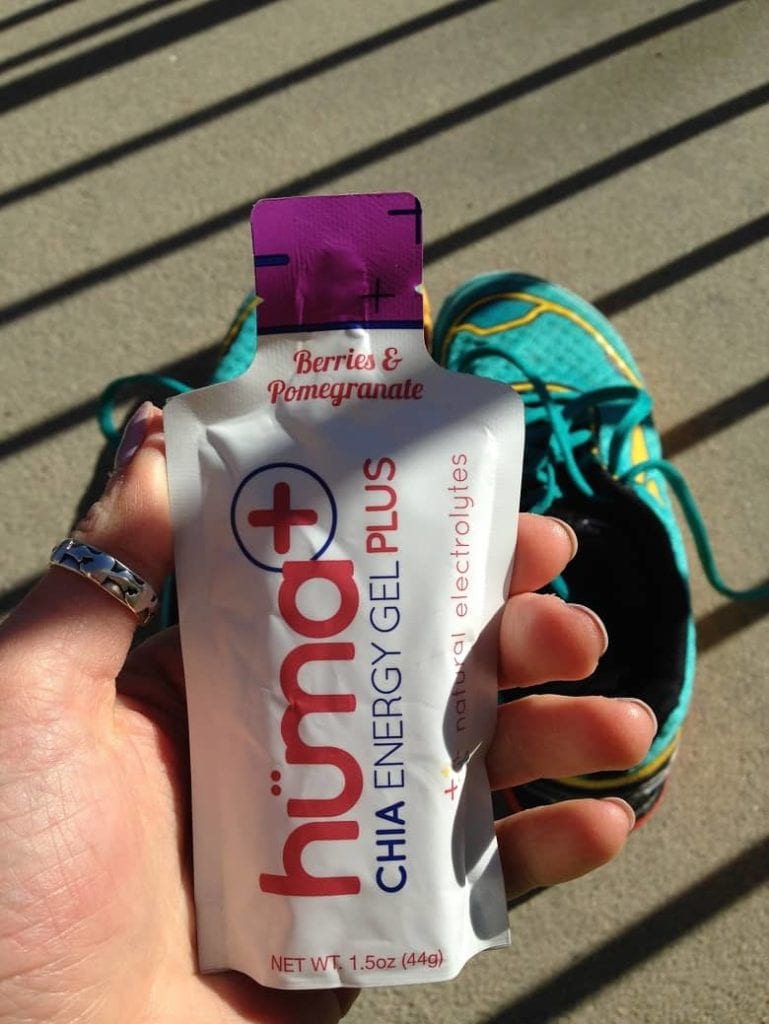
I don’t think a keto diet for endurance athletes or keto diet for runners is helpful, and I do recommend practicing having carbs in your race day breakfast.
As discussed, it can be beneficial for teaching the body to oxidize more fats during longer exercise (which can help with endurance), but the research is still up in the air about performance.
And if you’re competing in events less than 2-3 hours, it definitely won’t be beneficial.
I’ll summarize by stating that because the depletion of endogenous carbohydrates (muscle and liver glycogen + blood sugar) can impair athletic performance, fueling strategies should optimize carbohydrate availability before, during and after exercise.
If you’d like more information about sports nutrition in general, here are some of my favorite books and resources
- Sports Nutrition, A Handbook for Professionals
- Sports Nutrition Guidebook by Nancy Clark
- Nutrition Periodization by Bob Seebohar
Want To Check Out More of the Marathon Training Series?
- Nutrition for marathon race day
- Carb Loading for Runners
- Easy Meals for Marathon Training
- Hydration for Runners for Summer Running
- Recovery After a Half Marathon
- BCAAs for runners
- The best recovery foods for runners
A DIETITIAN IN YOUR POCKET?!
Are you always hungry?! This is the sports nutrition resource you’ve been missing in your training and every day life. Here’s you can make sure you’re eating enough for daily life, performance and recovery. – grab it now!

Resources:
Bartley JD, Hawley JA, Morton JP. Carbohydrate Availability and exercise training adaptation: too much of a good thing? Eur J Sport Sci. 2015; 15(1):3-12.
Burke, Louise et al. “Carbohydrates for training and competition.”
Burke, Louise. Preparation for Competition. In: Burke L, Deakin V, eds. Clinical Sports Nutrition. 4th ed. Sydney, Australia. McGraw-Hill; 2010:304-326.
Cox, et al. Daily Training with high carbohydrate availability increases exogenous carbohydrate oxidation during endurance cycling. J Appl Physiol (1985). 2010 Jul;109(1)
Currell K, Jeukendrip AE. Superior endurance performance with ingestion of multiple transportable carbohydrates. Med Sci Sports Exerc. 2008 Feb;40(2):275-81
Hargreaves Mark, Hawley John and Jeukendrip Asker. Pre-exercise carbohydrate and fat ingestion: effects on metabolism and performance. Journal of Sports Sciences (2004), 22:1, 31-38,
Hawley JA, Schabort EJ, Noakes TD, Dennis SC. Carbohydrate loading and exercise performance. Sports Med. 1997 Aug;24(2):73-81.
Support Bucket List Tummy




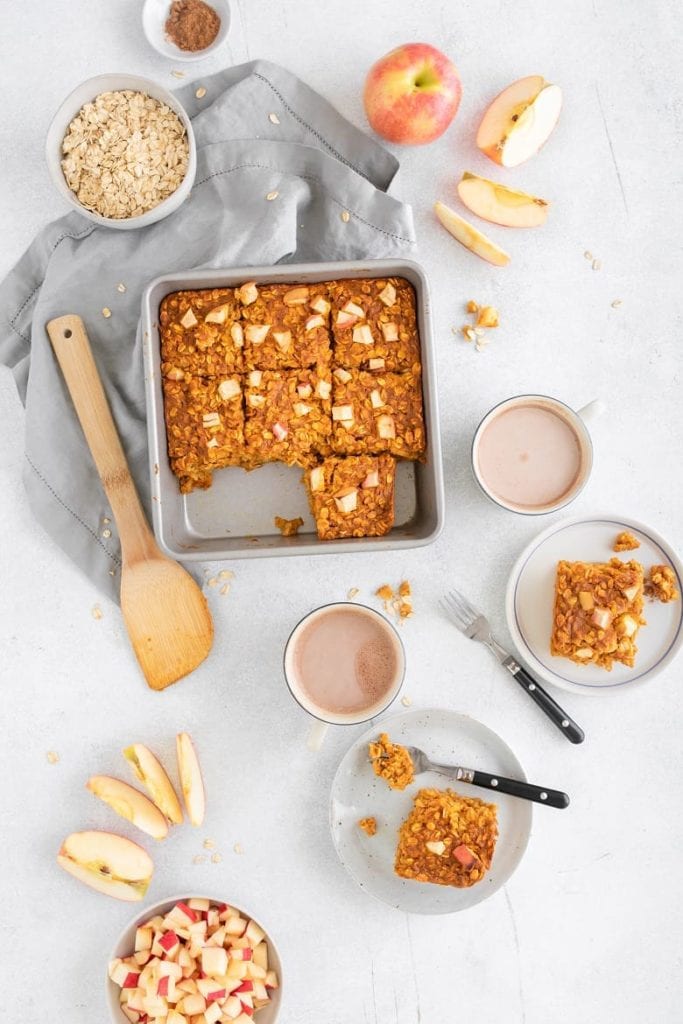




Like This Content?
Support Bucket List TummyInteresting article, thank you. I’m new to long distance and currently training for a 35mile run. I’ve been drawn to a low carb diet with the idea of using fat as an energy source.
I’m currently training using the MAF 180 formula, so my HR is low and steady during the runs.
I’m testing various foods at the minute. I don’t want to cut out carbs really, but want to benefit from fat as an energy source.
Can you share any more insight into how best to approach this?
I really don’t want to be using gels as fuel for my long runs or any product really. I’d rather fuel on whole foods.
Thanks again,
Dean
Hi Dean,
Thanks for your comment! We have 2+ modules that cover this in more depth in our fueling course, which you can learn more about here: https://nailyournutrition.podia.com/
In short, I would say that it’s definitely possible to fuel with more whole foods over gels and other products. Have you tried raisins/dried fruit, potatoes or sweet potatoes, dates, or homemade energy bites? I’ve even had clients make pb&j sandwiches, so there is more fat in there for the longer distance.
These science based running related posts are my favorites! Thank you for taking the time to research and explain. I especially like it because it’s exactly what I tell all of our runner friends/people we coach. Thank you!
So glad you find it helpful, Stephanie. Thanks for reading!
I’ve seen so many people on some Facebook pages asking about keto diet and I agree that you should only do it based on a medical condition where a low carb diet has been shown through research to help and do it with a doctor’s supervision. Thanks for sharing your thoughts on this Sarah!
I think people don’t understand that it is still a diet with external rules so if someone is working on their relationship with food (or in this case, tryiig to improve performance), it’s probably not the best option.